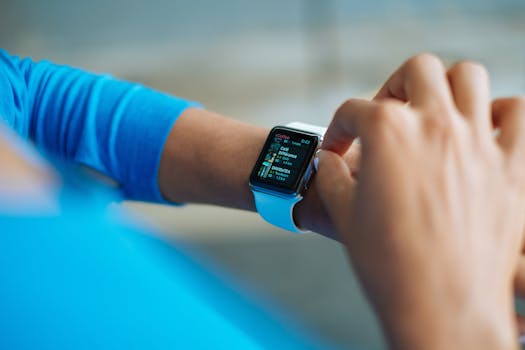
The Future of Health Tech: Wearables and Gadgets in 2025
The Future of Health Tech: Wearables and Gadgets in 2025 is an exciting and rapidly evolving field that is changing the way we approach our health and wellbeing. With the development of sophisticated wearables and gadgets, we are now able to track and improve our health in ways that were previously unimaginable.
Introduction to Health Tech

Health tech, short for health technology, refers to the use of technology to improve and manage our health and wellbeing. This can include a wide range of devices and systems, from fitness trackers and smartwatches to medical implants and diagnostic equipment. The goal of health tech is to provide us with the tools and information we need to take control of our health and make informed decisions about our care.
Wearables and Gadgets

Wearables and gadgets are two of the most exciting and rapidly evolving areas of health tech. Wearables, such as fitness trackers and smartwatches, are devices that we wear on our bodies to track and monitor our health and activity levels. Gadgets, on the other hand, are devices that we use to track and manage specific aspects of our health, such as blood glucose levels or blood pressure.
Types of Wearables

There are many different types of wearables available, each with its own unique features and functions. Some of the most popular types of wearables include:
- Fitness trackers: These devices track our physical activity levels, including steps taken, distance traveled, and calories burned.
- Smartwatches: These devices combine the features of a fitness tracker with the functionality of a smartphone, allowing us to receive notifications, control our music, and track our health and fitness goals.
- Health monitors: These devices track our vital signs, such as heart rate, blood pressure, and oxygen levels, providing us with valuable insights into our overall health and wellbeing.
Types of Gadgets

There are also many different types of gadgets available, each designed to track and manage specific aspects of our health. Some of the most popular types of gadgets include:
- Blood glucose monitors: These devices track our blood glucose levels, providing us with valuable insights into our diabetes management.
- Blood pressure monitors: These devices track our blood pressure levels, providing us with valuable insights into our cardiovascular health.
- Portable defibrillators: These devices are designed to restore a normal heartbeat in the event of a cardiac emergency.
The Future of Health Tech

The future of health tech is exciting and rapidly evolving. With the development of new and innovative devices and systems, we can expect to see significant advances in the way we approach our health and wellbeing. Some of the trends and innovations that are expected to shape the future of health tech include:
- Artificial intelligence: AI is expected to play a major role in the future of health tech, with the development of sophisticated algorithms and machine learning systems that can analyze our health data and provide us with personalized recommendations and insights.
- Internet of Medical Things (IoMT): The IoMT refers to the network of connected medical devices and systems that are designed to track and manage our health and wellbeing. This network is expected to grow significantly in the coming years, providing us with new and innovative ways to manage our health.
- Personalized medicine: Personalized medicine refers to the tailored approach to healthcare that takes into account our unique genetic profiles, medical histories, and lifestyle factors. This approach is expected to become increasingly popular in the coming years, with the development of new and innovative treatments and therapies.
Conclusion

The Future of Health Tech: Wearables and Gadgets in 2025 is an exciting and rapidly evolving field that is changing the way we approach our health and wellbeing. With the development of sophisticated wearables and gadgets, we are now able to track and improve our health in ways that were previously unimaginable. As the field of health tech continues to evolve, we can expect to see significant advances in the way we approach our health and wellbeing, from the development of new and innovative devices and systems to the growth of the Internet of Medical Things and the tailored approach of personalized medicine.






